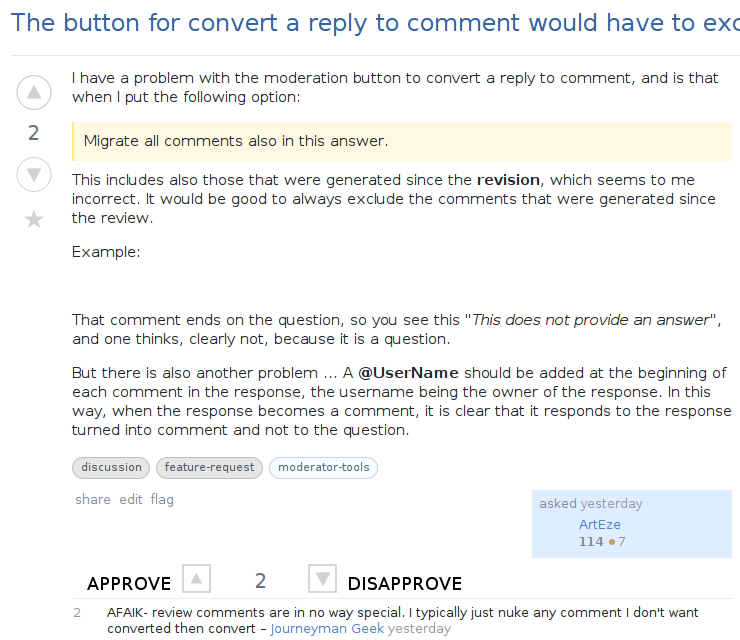I just got rid of a question ban, after doing some stupid stuff when I just got on meta. I asked a question which got closed because it was a dupe of a whole lot of other questions. After that, I posted a suggestion, which had 1 upvote, and four downvotes. That was all my activity on meta.
After posting some constructive answers here again, I regained the right to ask questions. Although I know that I'm risking to get downvoted into oblivion again, I'd like to suggest an 'agree/disagree' button. This time, I have searched meta, and was not able to find any suggestion like this.
When I had been banned, I was looking at a lot of questions discussing penalties and meanings of downvotes on meta; Some say that a downvote has an ambiguous meaning, they can mean either that your question is low quality, or that people disagree with it. Some say that it is just unclear what it means. To clean this meaning up, I'm suggesting these buttons. They could be a thumbs up and a thumbs down buton or something, to distinguish between agreement and question quality.
Disagreement would only remove 1 rep from the asker, and would be free for the downvoter, while downvotes remove 2 rep, or as suggested in other feature requests, 5 or 10.
The only problem I can see, is that this goes against the 'don't make me think' rule in UI design. Users now need to learn even more, because they need to know the difference between those icons.
Another way this could be implemented, is by changing the influence of votes based on the feature-request, bug and discussion tags.

